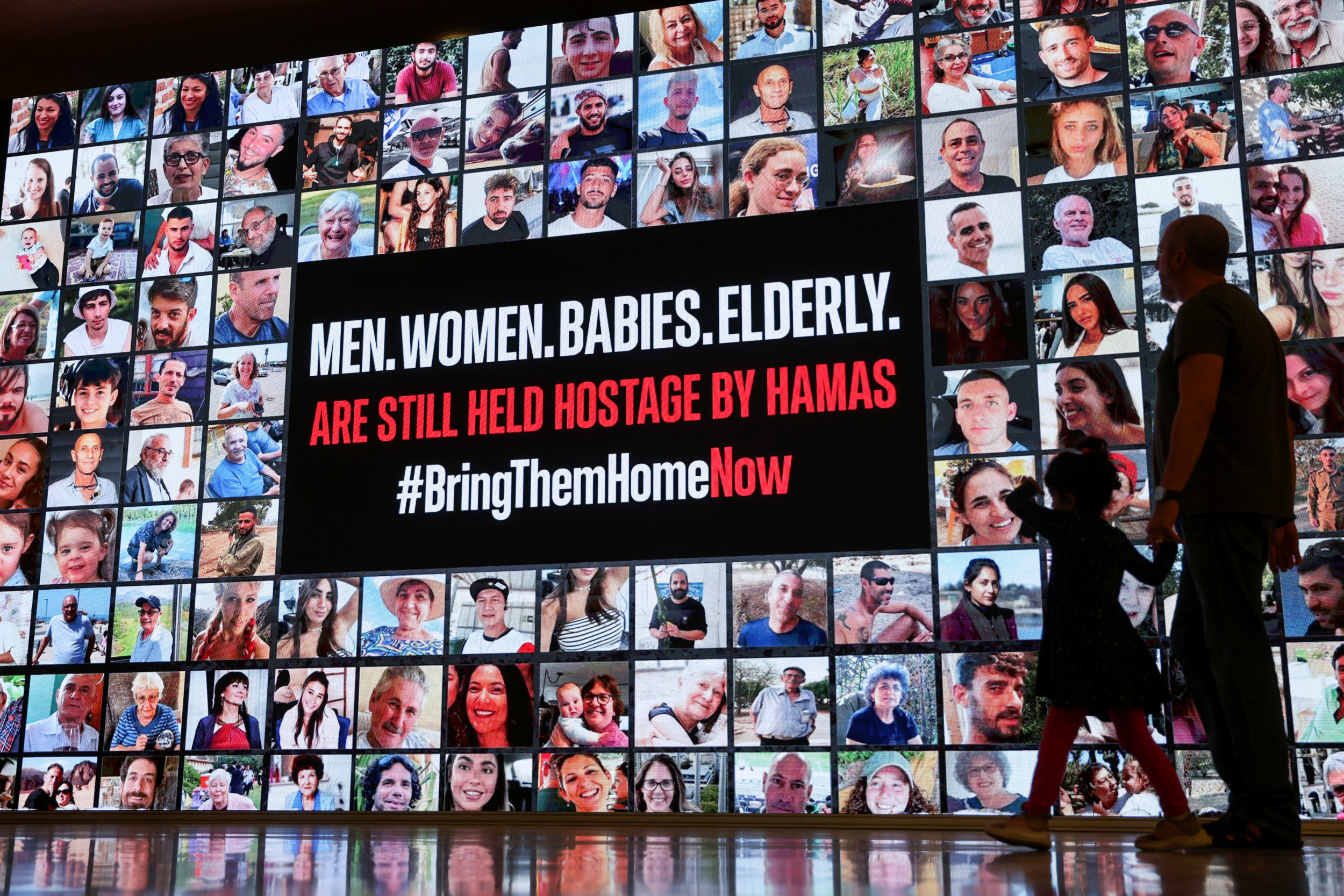A Hostage Deal and Ceasefire Is Still Possible. We in Qatar Won’t Give Up

The past year has been marked by intense grief and regret: Grief for the thousands of innocent Palestinian and Lebanese civilians who have been killed or displaced, for the hostages still in captivity, and for the people in Israel who lost their lives on October 7 during the horrific attack. At the same time, there is regret for the missed opportunities to end this brutal war through peaceful means, to alleviate the suffering, and to bring the hostages home.
The region is in a state of peril not seen in decades. The risk of a full-scale regional war is real, requiring that all sides step back from the brink—especially given the latest escalation in Lebanon and growing tensions between Iran-Israel. The toll of such a conflict would be catastrophic, both in terms of the immediate devastation and the long-term regional instability it would create, fueled by a rise in extremism from a new generation of disenfranchised and angry youth, many of whom have witnessed the systematic killing of their family and friends.
Yet despite the threat of a wider conflict, we must continue to encourage diplomacy as the only viable route to a solution. My country, Qatar, remains committed to pursuing a ceasefire and a hostage-release deal in Gaza as the first step toward regional de-escalation. Over the past 12 months, we have worked tirelessly alongside the United States, Egypt, and other international partners as mediators between Israel and Hamas. Our efforts have brought some success. In November last year, Qatari-led mediation secured a one-week ceasefire and the release of over 100 hostages. This was achieved using the communication channel opened with Hamas in Qatar over a decade ago, in coordination with the United States, to facilitate negotiations during times of crisis, such as the one we currently face.
The November ceasefire and hostage deal was a victory for diplomacy. While short-lived, it proved that progress through negotiation is possible. In the months since, Qatar has facilitated numerous rounds of talks and attended many more, working closely with CIA Director Bill Burns and other U.S., Israeli and Egyptian officials, using our diplomatic channels to relay the necessary details to Hamas to try and bridge the gaps and find common ground.
AHMAD GHARABLI/AFP via Getty Images
Qatar’s pursuit of a negotiated solution comes from our sincere belief that dialogue, diplomacy, and compromise are the only way to bring lasting peace and stability. We firmly believe that our security is inextricably linked to the security of the region. By creating space for different parties to discuss their differences, we can make the region—and the world—safer and more stable, ultimately preventing escalation through open communication. This is why Qatar is committed to mediation.
Over the past 25 years, Qatar has mediated several international disputes, whether in Afghanistan—mediating a peace deal between the U.S. and the Taliban that ended the longest war in American history—or more recently in Ukraine, where we have facilitated dialogue toward the reunification of families displaced by the ongoing conflict with Russia. These successes reinforce our view that negotiation, even in the most challenging situations, can yield positive results.
In Gaza, we have come close to a deal before, and we believe that through sustained effort and a good-faith commitment from all parties, peace can be achieved. However, this requires a willingness from all sides to embrace diplomacy and to recognize that the path to lasting security lies in dialogue, not destruction. Qatar’s engagement as a mediator has often been misunderstood as support, but we have always held that if you only talk to friends, peace will remain out of reach. True progress demands communication with all sides.
The one-year anniversary of the war in Gaza is a day that Qatar, along with many other countries around the world, hoped would never come. The new cycle of violence that started on October 7 is the reason for the regional spillover we are witnessing today, but it is also the key to de-escalation. All sides need to understand that only through a mediated, just settlement will the security and stability of Israelis and Palestinians be guaranteed. We therefore urge all sides to focus on negotiations, to step back from the precipice of further conflict, and to engage in meaningful dialogue.
Qatar’s position is clear: Diplomatic efforts toward a ceasefire will save lives on all sides and pave the way for lasting peace. Dialogue through mediation is the only way to build trust and understanding between conflicting parties. Violence and bloodshed are never the solution. A ceasefire in Gaza could and should have been achieved many months ago, but ending this conflict has now become more important and urgent than ever before. My country and I will not abandon hope; there is simply too much at stake.
Meshal bin Hamad Al Thani is the Ambassador of the State of Qatar to the United States of America.
The views expressed in this article are the writer’s own.
Related
Qatar emphasizes importance of reaching agreement between US, Iran
CAIROQatar's Prime Minister Sheikh Mohammed bin Abdulrahman Al-Thani stressed the critical need for an agreement between the US and
International Women’s Day: Seeking a Balance with Ghada Al Subaey
1309’s Ghada Al Subaey of Qatar celebrates the many layers of femininity in her recent drop, called Labyrinth of Light. This International Women’s Day, the
Discover Ooredoo Plans and Services in Qatar
Ooredoo is the household name in the field of telecommunications and provides a full portfolio of telecom services: mobile plans for everyone, home
What Will The Imminent Qatar Airways Widebody Order Include?
Which Airline Alliance Do You Prefer To Fly With?












